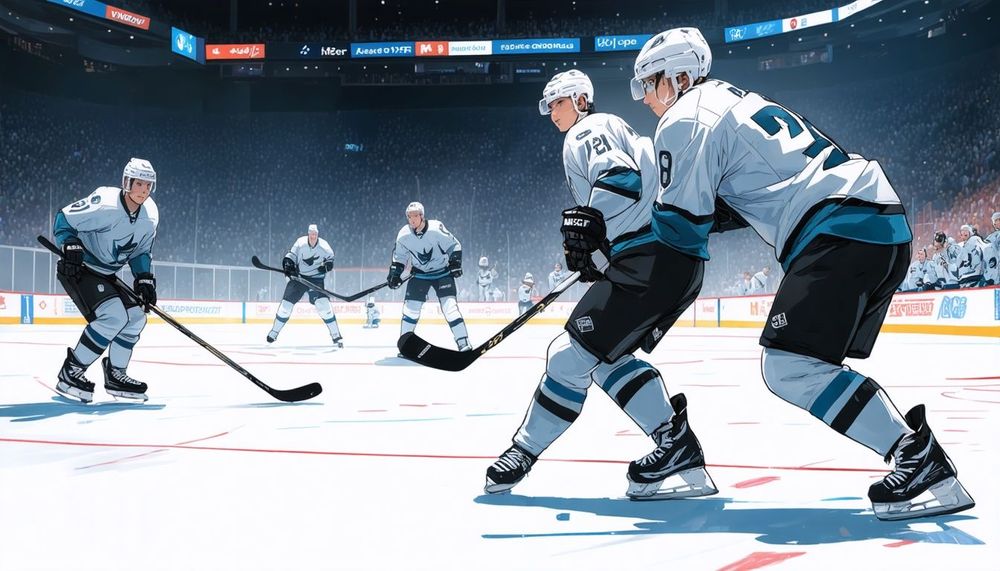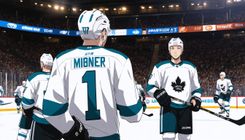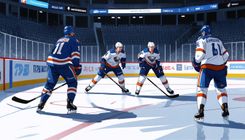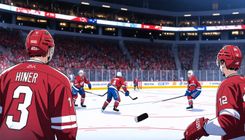NHL Teams Facing Accountability Amidst Pressure to Succeed

The pressure within the NHL is a multifaceted phenomenon that varies significantly across teams. While some clubs strive for improvement and aim for playoff appearances, others grapple with the intense burden of expectations to secure the Stanley Cup, with time constantly working against them. The Florida Panthers, having reached the Stanley Cup Final impressively in recent years and winning it last season, provide a stark reminder of the complexities involved in achieving such success. For a number of franchises still seeking their first championship, the end of each season without a Final appearance catalyzes a challenging dialogue about the future, particularly when repeated failures weigh heavier over time. This article highlights teams possibly on the verge of significant changes as they navigate the struggle of unmet aspirations.
The Toronto Maple Leafs have become emblematic of this struggle. Following a disappointing postseason exit, the team unexpectedly parted ways with star forward Mitch Marner, who opted not to re-sign with the franchise. Although the loss of a top-10 player presents significant hurdles, the Leafs have retained key figures such as Auston Matthews and William Nylander, alongside re-signing John Tavares and extending Matthew Knies. However, questions linger regarding the team's defense and the overall depth in goal, specifically whether Morgan Rielly can rise to the challenge as their cornerstone defenseman and if goalies Joseph Woll and Anthony Stolarz can maintain their health and performance levels. General Manager Brad Treliving's moves aim to transform Toronto into a more physically dominant squad to contend with rivals like Florida, Ottawa, and Montreal. The stakes will be high, and should the team encounter another shattering playoff elimination, fans may be left pondering the necessity of substantial changes.
The New York Rangers present another intriguing case, having initiated a franchise reevaluation prior to last season, a trajectory that continued into the latest offseason. A series of strategic trades, such as sending Chris Kreider and K'Andre Miller away, may raise questions about the club's intentions. Yet, the desire to win a Stanley Cup remains paramount for owner James Dolan, who is unlikely to allow continued mediocrity. With a talented roster that includes Mika Zibanejad, Artemi Panarin, Adam Fox, and Igor Shesterkin in goal, the Blueshirts are poised for potential success under newly appointed head coach Mike Sullivan. However, with star winger Panarin facing unrestricted free agency next summer, another season without significant advancement could force the organization to reconsider its structure and strategy.
The Los Angeles Kings find themselves in a challenging predicament, primarily due to their years of playoff disappointments against the Edmonton Oilers. The recent changes in executive leadership, such as the replacement of General Manager Rob Blake with Ken Holland, reflect the urgency to adapt. Despite boasting an impressive roster featuring veterans like Anze Kopitar and Drew Doughty, the infusion of younger talent must occur swiftly for the Kings to maintain competitive viability. Its balance of experienced players and promising youngsters like Quinton Byfield and Alex Turcotte requires careful management to avoid stagnation. If the team ultimately falters this season or cannot overcome the Oilers in yet another playoff series, exploring options to move aging players may become a viable consideration moving forward.
In Washington, the Capitals adopted a dual perspective concerning their offseason strategy. Some viewed the acquisitions made in free agency as desperate attempts to bolster a fading playoff window for Alex Ovechkin, while others interpreted them as opportunistic moves designed to capitalize on past successes. The addition of defenseman Jakob Chychrun exemplifies efforts to assist fellow blueliner John Carlson. Last season, these decisions proved fruitful, resulting in the Capitals finishing atop the Eastern Conference during the regular season. However, with uncertainty surrounding Ovechkin’s future and the importance of establishing a solid foundation for life after his departure, the Capitals must act decisively to either build on their performance or confront the necessity for strategic shifts to regain their postseason momentum.
The Dallas Stars are bracing for vital transformations this season after parting ways with head coach Pete DeBoer following another disappointing exit in the Western Conference Final. With Glen Gulutzan returning to helm the squad, the expectations remain high despite historical trends. Another key element to monitor in Dallas is the situation involving star forward Jason Robertson. As a restricted free agent next summer approaching unrestricted free agency in two seasons, Robertson's future looms large over the franchise. With significant contracts already committed to a few key players, the Stars must navigate financial considerations delicately. If the team fails to advance in the postseason once more, the possibility of trading Robertson could materialize, despite it not constituting a full-scale blow-up but rather a recalibration of their roster.
The Edmonton Oilers, having recently reached the brink of Stanley Cup success, continue to find themselves in a precarious win-now phase. Following their heartbreaking seven-game series loss to the Florida Panthers two seasons ago, the pressure intensified after their more recent five-game elimination. The ongoing struggles uncover various weak spots in the roster that could hinder its prospects, especially when facing formidable rivals such as the Kings and Stars. Additionally, with Connor McDavid’s future becoming increasingly uncertain, should the Oilers fail to clinch the Cup this season and he declines to sign an extension, drastic changes would almost certainly be unavoidable, compelling the organization to reconsider its championship aspirations.









